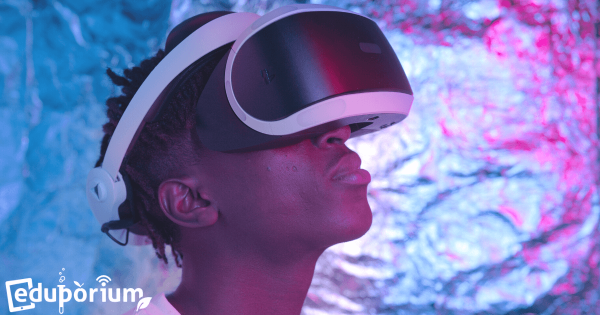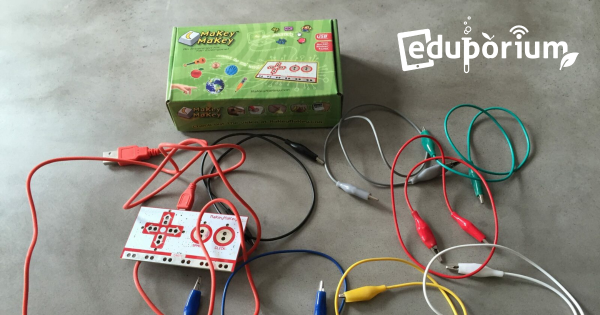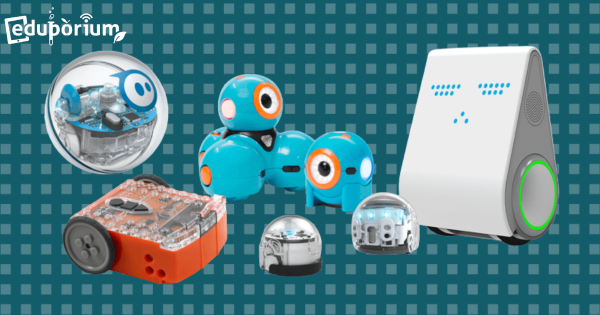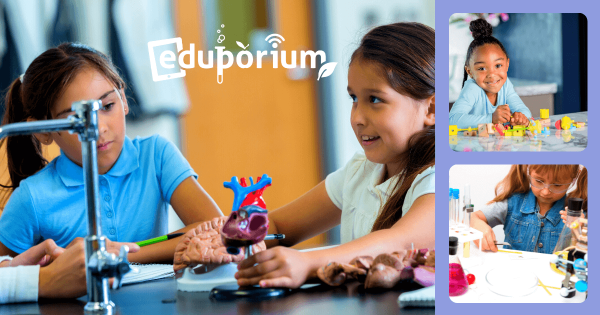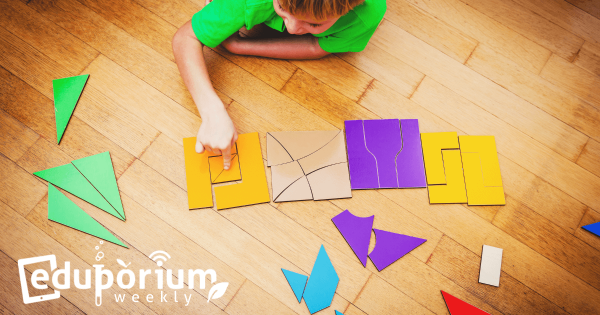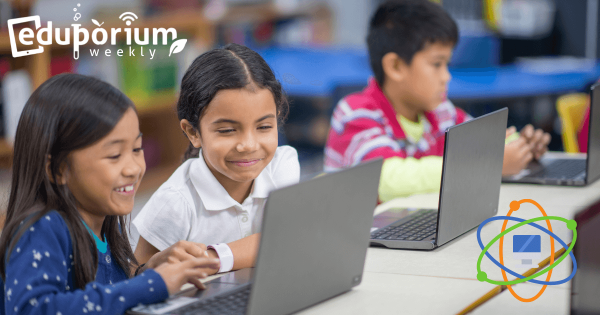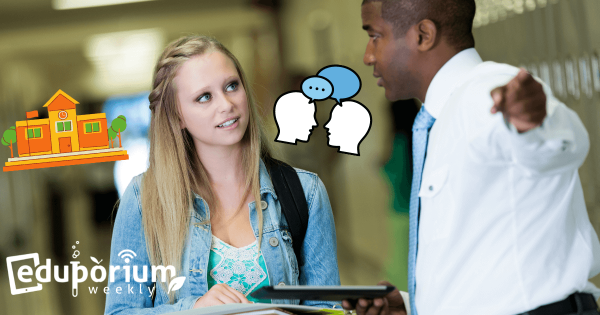Its potential is enormous and the learning opportunities it helps create are astounding. Some teachers, however, shy away from trying it because they assume that it’s too complicated or too expensive. The truth is that it’s outrageously easy to use and extremely affordable—even for educators. So, does VR have a future in K-12 classrooms?
Eduporium Weekly
Our longest running current blog series, the Eduporium Weekly is your source for relevant education topics. Whether it's related to EdTech, STEM, SEL, makerspaces, soft skills, equity, CTE, or any number of other things, you are sure to find some relevant content here. Our team remains committed to providing intriguing and up-to-date opinions and perspectives on the most important topics—whether they're technology-based or not. Every week, we share our thoughts about those key topics in education. Giving educators a Saturday morning read, many of our Eduporium Weekly posts reflect recent happenings, important updates, or, sometimes, some fun revelations. We're also very fortunate to serve a community of such committed educators. For that reason, we strive to keep our thoughts and content fresh. And, this section of our blog is a great place to go for just that.
Whatever is happening in education, we believe our committed team members help educators adjust. As we've seen, technology has a place in all types of learning—as long as educators integrate it strategically. As debates and discussions in STEAM and general education evolve, we adapt this content to continually educate, inform, and entertain. Our perspective may be a bit unique but our collective expertise on these topics is always improving. We also encourage you to browse the pages or search for a topic of your interest on the left of your screen. We certainly take pride in being up to date with what teachers are experiencing. From our entire team, we hope this content truly provides you with guidance and inspiration. Check back every weekend, as well, for the latest edition of the Eduporium Weekly.
-
Eduporium Weekly | Taking it Personal
Even with technology available, you might be wondering how on Earth teachers could provide each student with a meaningful personalized experience. Personalized education has become more than just a trend in our education systems, however. When teachers provide students with content and approaches that suit them best, students often find success. -
Making Makers Make... With The Makey Makey
For educators, especially those who may be new to technology and STEM in general, the Makey Makey is an excellent starting point for your lessons. Besides immediately recognizing its catchy name, the Makey Makey is an extremely appealing teaching tool that boosts engagement and maximizes instruction. What does it help you teach? Just about anything you want. -
Professionally Speaking... All K-12 Teachers Can Develop
Okay, it isn’t exactly the same as it always has been, but is today’s teacher PD keeping up with the times, especially when it comes to technology? We expect educators today to be willing to use tech tools to reach and engage each of their students, but how can they do that if they don’t know how to use the -
Robotics: A Competition And A Stepping Stone
If you think you’ve seen kids get excited about learning, you probably haven’t seen the full extent of excitement until you’ve seen robots make their way into the classroom. Teachers can discuss the ideas of learning with robotics with their students, but when it comes to unleashing their potential in the classroom, students won’t be able to contain themselves. -
Eduporium Weekly | Girls in STEM
Have you ever heard the phrase “bucking the trend?” It’s usually used when something in particular has been the status quo for a number of years and a group of dedicated individuals decides that they want to be a part of it instead of watching from the sidelines. When it comes to the number of girls who pursue CS careers, -
Eduporium Weekly | The Earlier the Better
Proponents of STEM education generally believe that hands-on, practical and in-depth learning should really begin taking place during a student’s high school years. We believe, however, that it can start earlier than that—like, much earlier. Who’s to say that young children cannot be exposed to the same kinds of experiential learning as older students? -
Eduporium Weekly | Computer Science? Yeah, It's Huge
Alarmingly, just one in 10 American schools offer regular computer science classes in their curricula. If I could pick just one word to describe that trend, it might have to be ‘disconnect.’ It doesn’t make any sense, you see, because jobs involving computer science skills are being created four or five times as fast as qualified graduates can fill them. -
Eduporium Weekly | The Principal Players in Education
What can we say about principals? Tell everyone how awesome they are and how much they care about their students and their school and their community? You probably already know that. Principals, of course, play a crucial role in the success of their students based on who they bring in as teachers and the variety of afterschool programs they can -
Eduporium Weekly | Are You Future Ready?
It’s time to replace pencils and notebooks with programmable robots and problem-solving courses that focus on interactively developing an unrelenting desire to improve creativity and inquiry-based knowhow. Strategies tend to differ as there are lots of different considerations to take into account, like grade level, affordability and other things.




